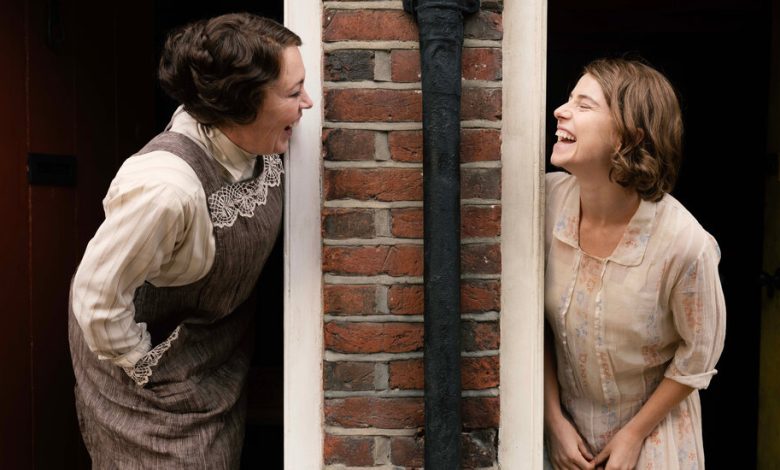‘Wicked Little Letters’ Review: Prim, Proper and Profane

“This is more true than you’d think,” handwritten text informs us at the start of “Wicked Little Letters.” I looked it up, and they weren’t kidding. The movie involves tweaks and elisions to history, of course. But at least in its major outlines, the true story matches the film, in which a dour spinster named Edith Swan (Olivia Colman) and her raucous next-door neighbor Rose Gooding (Jessie Buckley) tangle over a series of mysteriously obscene letters that started arriving at the homes of people in the English coast village of Littlehampton in 1920. As you may intuit, this movie belongs to a very particular subgenre summed up in one declaration: boy, small English towns are full of weirdos.
Directed by Thea Sharrock (who has an impressive two movies out this week — the other is “The Beautiful Game”) from a screenplay by the comedy writer Jonny Sweet, “Wicked Little Letters” is a darkly funny take on the tale, leaning a lot more toward the farce than the darkness. Edith, the oldest daughter in a large and very pious family, still lives with her parents (Timothy Spall and Gemma Jones). They sleep in three twin beds in the same room. They rarely go anywhere and are constantly scandalized.
Edith has been under her father’s thumb so long that any will she possessed has been wholly squashed out, which makes her exactly the ideal of feminine virtue for 1920s England. The men have returned from war — those who survived, anyhow — and retaken the jobs and roles women filled, relegating them back to the kitchen and domestic life. Edith, homely but docile, is everything a good Christian Englishwoman should be.
And of course, anyone who deviates from Edith’s type is suspicious. Rose, for instance, has committed a quadruple feat of sin: living with her Black boyfriend (Malachi Kirby), having a daughter (Alisha Weir) who dares the unladylike act of picking up a guitar, enjoying a night at the pub and, most of all, being Irish.
When she arrived in Littlehampton, she was a figure of affable curiosity to her neighbors, especially Edith. But by the time we meet them, Edith has accused Rose of sending elegantly written obscene letters to her and to the neighbors — letters containing marvelously inventive strings of epithets so vile that I cannot reproduce them in this newspaper. Edith endures the letters with a visage so saintly that you can practically see her halo: “We worship a Messiah who suffered, so by my suffering, do I not move closer to heaven?” she intones to her parents, eyes modestly cast down.